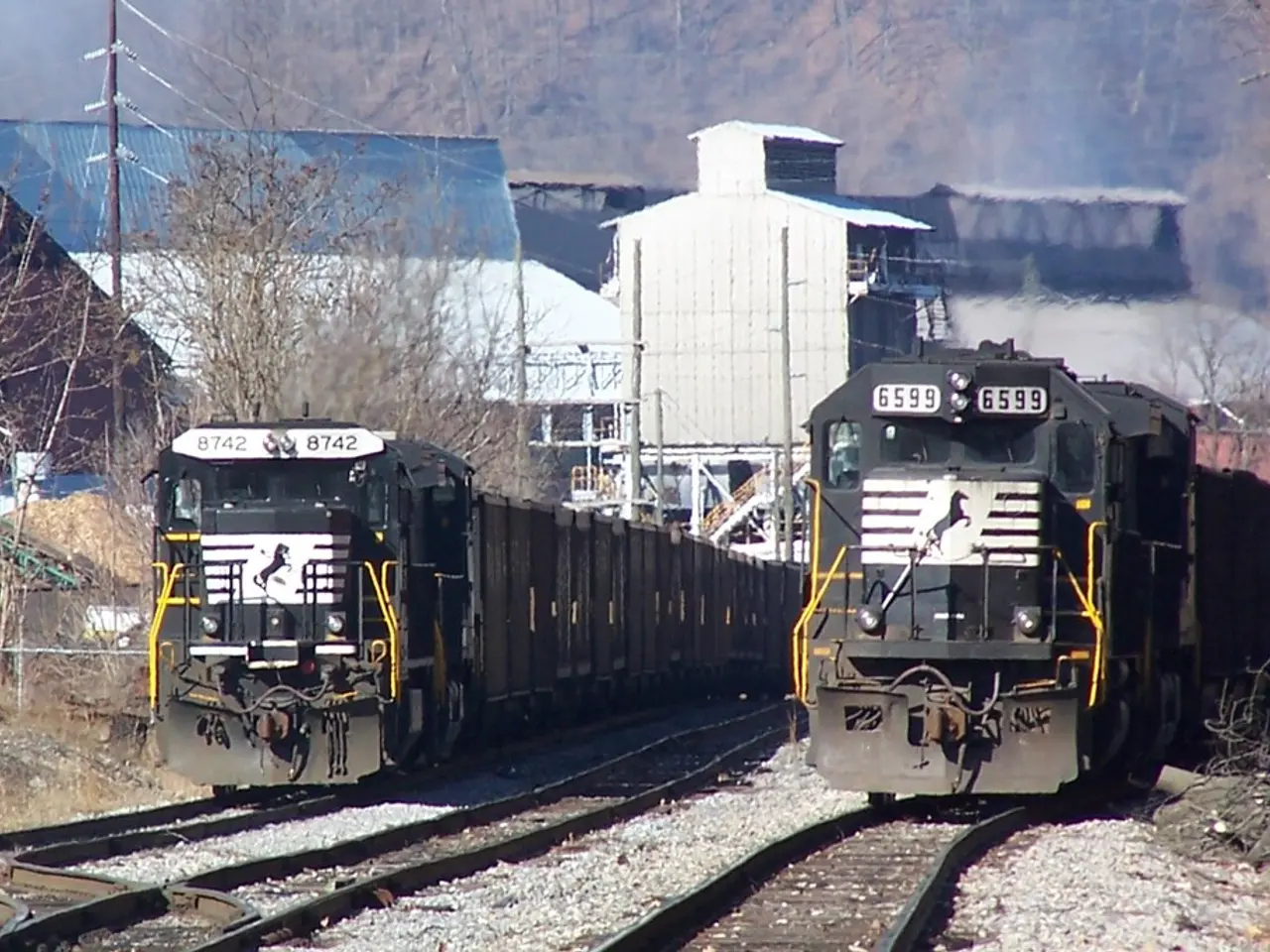Railroad giant Union Pacific has enlisted financial advisors for a potential acquisition deal
Union Pacific, the largest publicly traded railroad in America, is reportedly exploring an acquisition of a rival, which could lead to the creation of the largest U.S. Class I railroad from coast to coast[1][2]. This potential merger would involve a series of regulatory hurdles and stakeholder considerations.
The regulatory approval process would be overseen by key bodies such as the Surface Transportation Board (STB) and the U.S. Department of Justice (DOJ). The STB, the primary regulatory body for railroad mergers, would assess the pro-competitive evidence provided by Union Pacific and evaluate the potential impacts on the market[1]. The DOJ, on the other hand, would review the merger for potential antitrust issues, ensuring that the acquisition does not significantly reduce competition in the market.
Labor unions representing railroad workers, Amtrak, and investors would also play significant roles in the approval process. Union concerns would centre around job impacts and working conditions, while Amtrak would ensure that the merger does not negatively affect its operations or services. Investors would assess the potential benefits or risks to their investments.
The merger could face challenges over competition concerns and operational efficiency. Regulators might scrutinise the impact on competition, particularly if it leads to reduced service options or increased prices for customers. The ability of the merged company to improve operational efficiency and reduce delays would be a key factor in regulatory approval.
The Trump administration's stance on such mergers is not directly relevant at present, but historically, it generally supported deregulation and mergers if they were deemed to improve efficiency and competition. However, the Biden administration's policies on antitrust and mergers have been more scrutinising compared to the Trump era.
The current discussions are in the early stages, and there are no guarantees of a successful deal or regulatory approval. Other potential suitors could also emerge, complicating the process[1][2]. As of now, there is no specific information on the Biden administration's stance on this particular merger.
If Union Pacific proceeds with an acquisition, it could potentially create the country's first coast-to-coast carrier, making it more competitive against the trucking industry, which handles more than 70% of domestic freight. However, the potential target of Union Pacific's acquisition couldn't be learned.
Morgan Stanley is involved in Union Pacific's exploration of an acquisition, and Union Pacific CEO Jim Vena has expressed interest in a transcontinental railroad, which would combine Union Pacific's western network with either CSX or Norfolk Southern[1]. The Trump administration's push for increased industrial competitiveness is perceived as creating a window for railroad mergers to occur.
However, it's important to note that the Surface Transportation Board's Republican chair has privately expressed an openness to a transcontinental merger, while the potential Union Pacific acquisition wouldn't create a bicoastal player, as Canadian Pacific and Kansas City Southern merged in 2021 to create a north-south juggernaut.
The Trump administration's appetite for mergers is being tested with Union Pacific's exploration of an acquisition, and the potential for increased American industrial competitiveness is seen as a potential factor in the ability to push railroad deals through.
[1] Source: Reuters, The Wall Street Journal, Bloomberg [2] Source: Morgan Stanley, Union Pacific, Norfolk Southern
In the context of Union Pacific's potential acquisition of a rival, the U.S. Department of Justice (DOJ) will review the merger for potential antitrust issues, ensuring that the acquisition does not significantly reduce competition in the market. Additionally, investors will assess the potential benefits or risks to their investments following this business move.




